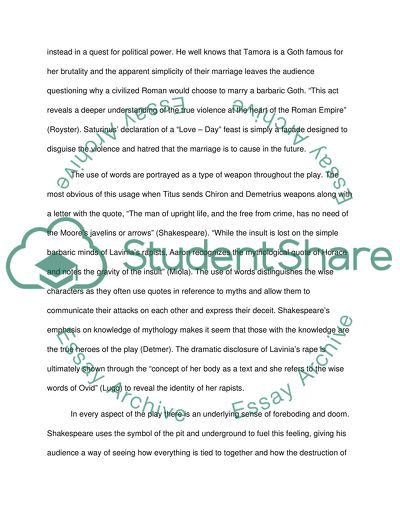Cite this document
(“Titus Andronicus a political tragedy Book Report/Review”, n.d.)
Titus Andronicus a political tragedy Book Report/Review. Retrieved from https://studentshare.org/history/1504419-titus-andronicus-a-political-tragedy
Titus Andronicus a political tragedy Book Report/Review. Retrieved from https://studentshare.org/history/1504419-titus-andronicus-a-political-tragedy
(Titus Andronicus a Political Tragedy Book Report/Review)
Titus Andronicus a Political Tragedy Book Report/Review. https://studentshare.org/history/1504419-titus-andronicus-a-political-tragedy.
Titus Andronicus a Political Tragedy Book Report/Review. https://studentshare.org/history/1504419-titus-andronicus-a-political-tragedy.
“Titus Andronicus a Political Tragedy Book Report/Review”, n.d. https://studentshare.org/history/1504419-titus-andronicus-a-political-tragedy.


